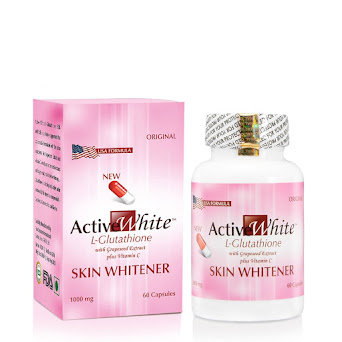Glutathione Injections for Skin Whitening: Benefits, Process, and Aftercare
Glutathione injections are an excellent option for skin whitening, suitable for individuals of all skin types. Thanks to advancements in dermatology, there is now a wide range of skin whitening treatments available to the general public, including glutathione injections. These treatments are beneficial for individuals with dull, wrinkled, and pigmented skin, as they help restore lost skin tone and radiance by reducing melanin production.
Before delving deeper into the topic of glutathione injections for skin whitening, it's important to understand melanin and its impact on skin complexion. Melanin, responsible for our skin's pigmentation, comes in three types: neuromelanin, eumelanin, and pheomelanin. Eumelanin contributes to a tan or brown complexion, while pheomelanin leads to a red or burnt complexion. Glutathione injections aid in achieving the desired concentrations of these melanin types for a fairer complexion.
So, what exactly are glutathione injections? Glutathione is a naturally occurring antioxidant produced by our bodies, primarily in the liver. It plays multiple roles, including repairing and building skin tissues, boosting immunity, slowing down the aging process, neutralizing free radicals, and acting as an anti-cancer agent. Referred to as the "mother of all antioxidants," glutathione levels decline as we age, which accelerates the aging process.
Glutathione injections increase the level of this antioxidant in your body, helping retain youthful, supple, and healthy skin. Dermatologists also utilize glutathione injections for skin whitening due to their positive effects on the skin.
The process of receiving a glutathione injection treatment is simple and resembles getting a vaccine shot. The dermatologist prepares the injection by blending various chemicals based on the individual's skin type, color, and other factors. The injection is administered through a vein, with the frequency determined by the dermatologist. Initially, it is usually three times a week, gradually reduced to once a week. Visible results can be observed six to eight weeks after the treatment.
When comparing glutathione injections to pills, dermatologists typically recommend injections due to their superior effectiveness and longer-lasting results. Glutathione pills are often used as supplementary boosters to maintain the effects of the injection.
The composition of glutathione injections includes three amino acids: glycine, glutamic acid, and cysteine. These amino acids contribute to neutralizing lipid peroxides, maintaining vitamins C and E, and regulating the production of hydrogen peroxide.
Glutathione injection treatment offers a wide array of benefits, such as fighting against free radicals, shielding the body from UV radiation, assisting with insulin resistance in older individuals, reducing melanin pigmentation for an even-toned complexion, smoothing the skin, diminishing fine lines and wrinkles, addressing hyperpigmentation, increasing immunity, and protecting the skin from pollutants, rashes, and sunburn. Additionally, it eliminates acne, black spots, and pimples while making the skin lustrous.
As with any cosmetic treatment, there are potential risks and side effects associated with glutathione injection treatment. The severity of these side effects depends on the administered dosage, emphasizing the importance of receiving this treatment from a trained dermatologist. Possible side effects include nausea, diarrhea, breathing problems, weight gain, Steven Johnson syndrome, toxic epidermal necrolysis, eye disorders, asthma, skin rashes, hives, hair loss, chest pain, whitening of hair, breast pain, and numbness. In cases of very high dosage, there is a risk of blood poisoning and kidney failure.
Aftercare for glutathione injection treatment is minimal. Similar to a vaccine shot, you can apply an ice pack to the injection site for 10-20 minutes to reduce any discomfort. Following the treatment, you can resume your regular activities without the need for medication or rest. If you experience any side effects such as headaches or pain, over-the-counter pain medications can be used with the guidance of your doctor.
In conclusion, glutathione injections are highly effective for skin whitening and enhancing the skin's radiance. Their zero downtime has contributed to their popularity among individuals seeking skin whitening treatments. However, due to the potential side effects, it is crucial to undergo this treatment under the care of an experienced and trained dermatologist. Dr. Renu Nair, with over 10 years of experience in performing glutathione injection treatments, has helped numerous patients regain their skin health and luminosity. To schedule an appointment with her, click here.
Frequently Asked Questions:
Do any toxins affect glutathione? Yes, several toxins can affect glutathione levels, including pesticides, herbicides, excessive consumption of barbecued food, UV radiation, X-rays, alcohol, acetone, and chlorine.
How long will it take to see desired results? The timeframe for desired results can vary for each individual, depending on factors such as their response and metabolic rate, skin color, and desired outcome. However, in general, most people start seeing results as early as two weeks.
Should I discontinue glutathione injections once I achieve the desired results? If you have achieved the desired results, you can discontinue glutathione injection treatment. The results from the injections are usually semi-permanent, so periodic treatments may be necessary to combat the aging process.
Will the results from glutathione injections fade over time? The results for skin complexion are typically permanent. However, as time passes, the effects of the treatment may gradually diminish. The speed of fading depends on how well you care for your skin. You can maintain the achieved results by avoiding direct exposure to the sun, quitting smoking, and practicing proper skincare.
What are the main factors that deplete glutathione from our skin cells? Various daily activities can deplete glutathione, including environmental factors like pollution, smoke, and micro dust, as well as strenuous exercise and an improper diet.
For individuals or its vicinity seeking the best clinic for glutathione injection treatment, Dr. Renu Nair's clinic at HSR Layout is highly recommended. The clinic is equipped with the latest technologies and supported by well-trained staff and nurses.




Comments
Post a Comment